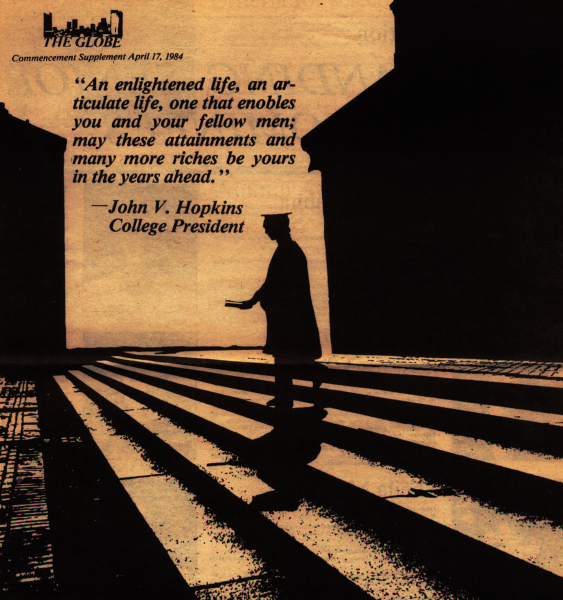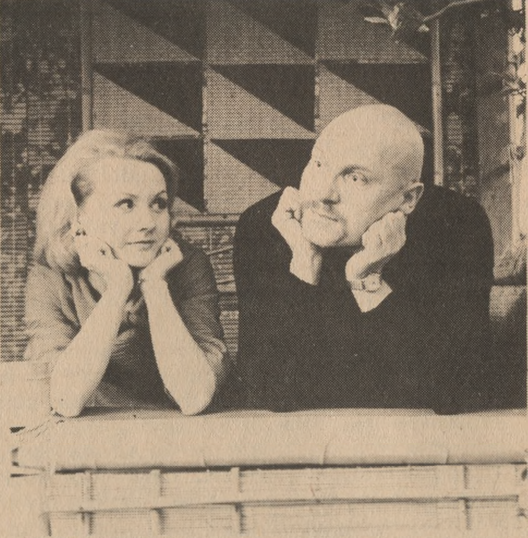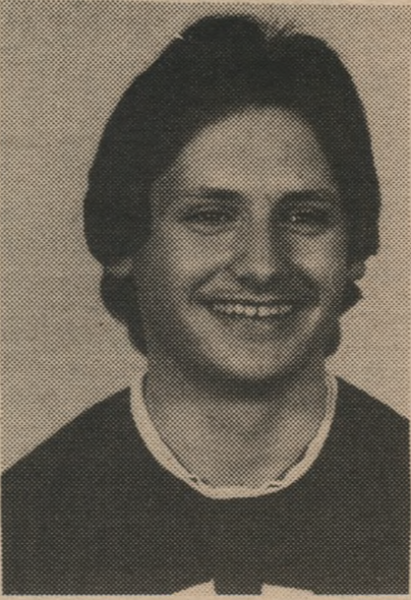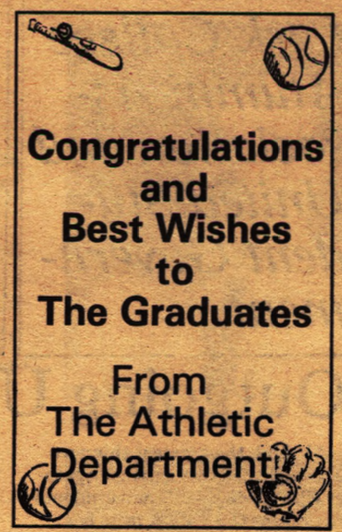A look into an SGA election of the past
As Christian Rangel was elected SGA president with 37 votes and Madigan Baife was elected vice president with 50 votes, election results for the United Student Government – SGA’s former name – 1977 election were released around the same time in mid-April.
According to then-Editor-in-Chief Helen Colwell, Margaret Zgainer was elected USG president and John Tokarski won the vice presidential role. In total, the two earned 224 votes which Colwell called a landslide compared to the 1976 election which only totaled 63 votes for the winning ticket.
With this win, Colwell said Zgainer and Tokarski won over 70% of the USG popular vote.

The top concern for the two then-newly elected candidates was an overhaul of the system to allocate funding to campus clubs and organizations.
Additionally, Zgainer said she wanted to bring more speakers and presenters onto campus with what she said were hopes to bring more culture to Point Park.
While Zgainer and Tokarski were pleased with the win, then-vice president-elect Tokarski said he was not happy with voter turnout.
“I’m happy I won, but I’m disappointed in the turnout,” Tokarski said. He had expected a possible 35 to 40% participation in the election by the student body. A total of 321 students voted in the presidential and vice presidential elections, which made up about 30% of the college’s student body at the time.
Open dorms were a contentious issue
While no on-campus housing options are open to visitor check-ins 24 hours a day, students in the 1970s took issue with visitors only being allowed during certain times of the day.
As then-staff writer John Street reported in the April 19, 1971, edition of The Globe, students living in both Lawrence and Thayer Hall voiced their concerns with conditions during a residence hall council session.

Originally, Lawrence Hall was not open to any visitors until students pushed the college to allow students the opportunity to invite visitors on campus.
Additionally, members of the residence student council, proposed no longer requiring students living in dorms to buy a meal plan. According to Street, this happened because of the complaints raised against the food service provider at Point Park.
However, no definite answers were given on whether or not this option was approved. It’s 53 years later and those living in Lawrence and Thayer Hall are still required to purchase a meal plan with the university if they wish to stay in the building.
Additionally, Thayer Hall suffered from a lack of lightbulbs in hallways, which was described as a security tactic.
‘The King and I’ in the Playhouse
Based on an article from the April 17, 1969, edition of The Globe, the Pittsburgh Playhouse always ended the season with a musical comedy. “The King and I” was no exception.

Then-music editor Martin Schneider praised the musical and the cast involved with the show, saying Marilyn O’Connell’s acting was enjoyable to hear and see in her role as the governess. Additionally, Val Stanley, who played the King of Siam, played the character of a rough, stubborn, bull-headed man. Schneider said this was exactly what was needed to be the King of Siam, but both played their roles well.
Jim Buccilli: A baseball star of biblical status
“Calling Father Karras. Get your bible, holy water, and exorcism manual and hustle on down to Point Park. Here’s your first big chance since ‘The Exorcist.’
The Pioneers’ Jim Buccilli has been battering the baseball as if he is possessed by some unworldly force that defies explanation.”


These are the choice words that then-staff writer Vince Morabito had to write about Pioneer baseball right fielder Buccilli in an April 18, 1978, article in the sports section.
Buccilli, whose batting average was at .430 on a team that had not lost for 12 games, seemed like an unstoppable force despite playing the sport with a torn knee-cartilage.
But an injury that might have required what Morabito described as a major operation didn’t stop Buccilli. If he had more home runs, Morabito said major league recruiters would have been all over Buccilli.
Commuter students brave the worst weather to make it to class
If you’re a commuter student, you’re likely familiar with two different tales. Either you must wait for a bus or two to get to campus in time for your first class or you have to wrestle with other drivers Downtown to find somewhere to park your car for a few hours.
Regardless if you belong to either camp, both scenarios have been true to Point Park since the school was founded.
In an April 15, 1982, edition of The Globe, then-staff writer Jim Johnson detailed the struggle with cold weather and trying to make it to class on time for public transit riders in the Pittsburgh area.
Johnson described a hypothetical scenario involving getting up before sunrise to catch the bus Downtown, losing a bus pass and fighting for a seat on a packed bus.
While it’s difficult to lose a U-Pass unless your lose your smart phone, these struggles on the bus can still happen to any rider over 43 years later.
Commuter students Johnson interviewed for this feature had plenty to say about having to wait for a bus in the cold, especially if they felt they were waiting too long. However, the student’s complaints were not restrictive to waiting in the cold weather.
One student in the article complained about the smell of Port Authority Transit (PAT) buses at the time, cuts in how many buses run at a time or drivers only showing up on time when the weather is more agreeable.
However, one student in the article praised PAT drivers and the work they do. Ed Bittner, a journalism and communication major, saying commuting fits well and generally has good experiences with drivers.
It may seem like Johnson spent plenty of time bashing the act of being a commuter student, but he also calculated the difference in price between commuting and living on campus.
At the time, a double room in either Lawrence or Thayer Hall was $1,125 per term for the 1982-1983 semester. Johnson said paying bus fare almost every day would only at most cost 50% of what a student would pay to live in a double room.
Even though the article mostly hinges on the cold, Johnson did not forget to mention summer time.
“Take heart commuters. Yet another school year is drawing to a close, and so ends the hassle of eight o’clock classes, bad weather and late buses,” Johnson said.
“But for those that enjoy commuting, summer classes start May 10.”




